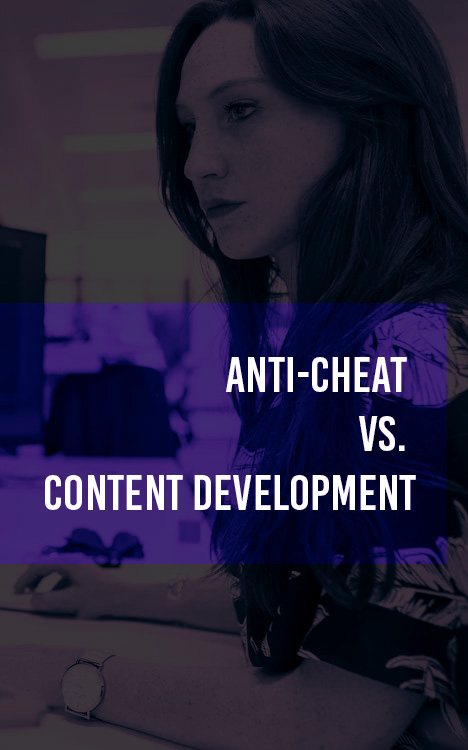Players, understandably frustrated by cheaters, often demand that studios shift development priorities. One of the most persistent misconceptions—echoed both within and outside of the development community—is the belief that developers working on content such as weapons, maps, or cosmetics should be reassigned to work on anti-cheat instead. This assumption, while intuitive on the surface, collapses under scrutiny.
The Specialist Fallacy
Game development is a multifaceted discipline. Teams are composed of highly specialized roles: artists, animators, gameplay engineers, backend developers, designers, and producers. While there is some cross-discipline fluidity, most professionals have spent years honing expertise in one area. A weapon designer or environment artist is not easily redirected into anti-cheat engineering, just as a backend security engineer is unlikely to be effective in animation or visual effects.
Reassigning content developers to anti-cheat efforts is not merely inefficient—it is often counterproductive. Security engineering, particularly in the anti-cheat domain, requires domain-specific knowledge of systems programming, hardware behavior, memory manipulation, binary obfuscation, and reverse engineering. In many cases, successful anti-cheat engineers are former cheat developers themselves, individuals who understand not just how cheats work, but how cheat developers think.
Valorant and the Kernel-Level Mirage
Players often point to Riot Games' Valorant as the gold standard, advocating that more studios adopt a kernel-level anti-cheat solution akin to Vanguard. While kernel-level anti-cheat does grant deeper access to system processes, its effectiveness is overstated. Vanguard works not because it operates at the kernel level, but because Riot has invested heavily in building a dedicated, full-time anti-cheat team, one that actively maintains, iterates, and adapts its approach in response to emerging threats.
Kernel-level access is not a silver bullet. It primarily governs when a cheat is loaded, not whether it can be detected. Many modern cheats circumvent kernel anti-cheats altogether by executing after the anti-cheat has initialized. Likewise, sophisticated cheat developers continuously evolve their methods to remain ahead of detection, using virtual machines, hardware-level spoofing, or encrypted memory.
A kernel-level system provides a valuable signal, but without the human capital and ongoing support structure behind it, it is little more than an expensive illusion of control.
The Talent Bottleneck
Even if studios accepted the need for dedicated anti-cheat personnel, there remains a deeper issue: scarcity. Anti-cheat specialists are in high demand and short supply. Many choose to form consultancies, offering their services to multiple studios rather than being tied to a single product. This model is beneficial in terms of resource efficiency but can dilute the depth of integration and responsiveness needed for high-impact cheat detection.
In-house anti-cheat teams, such as those at Riot or Valve, often outperform outsourced solutions precisely because they can embed themselves deeply within the game’s systems. The closer the collaboration between gameplay and security teams, the more effective the protection. Unfortunately, few studios are in a position to justify or attract such in-house teams at scale.
Beyond Code: Anti-Cheat as a Social System
At the heart of the problem is a conceptual misunderstanding. Cheating is not solely a technical challenge—it is a social and economic one. Cheating undermines community trust. It damages competitive integrity. And perhaps most importantly, it is profitable. As long as the incentives favor cheat developers, the arms race will continue.
This is where the industry must pivot. Rather than relying solely on deeper system access or larger engineering budgets, studios should begin to design anti-cheat as a hybrid technical-social system. Models such as CS:GO’s Overwatch and League of Legends’ Tribunal show early promise. These systems enable vetted community members to review reports, identify suspicious behavior, and contribute meaningfully to moderation.
The principle is simple: the vast majority of players are not cheaters. In fact, they have a vested interest in keeping their games fair. Yet most anti-cheat systems treat players as passive recipients of protection. This is a mistake. The community should be empowered as co-stewards of integrity.
We can draw inspiration from other fields. Wikipedia’s moderation model, open-source software governance, and Creative Commons-style attribution all rely on decentralized trust and social accountability. Anti-cheat systems can incorporate player reports, behavior-based flagging, replay analysis, and community auditing. These signals, when combined with machine learning and telemetry, form a far more robust and adaptive defense than any kernel-level gatekeeper.
The Road Ahead
There is no simple fix to the cheating problem. The internet is filled with well-intentioned but technically naive suggestions that fail to grasp the intricacies of cheat development and detection. Reassigning developers is not a solution. Hiring more specialists is constrained by market realities. And kernel-level access, while helpful, is not inherently sufficient.
What the industry must recognize is that anti-cheat is not just code—it is culture. The future of fair play depends on treating players not merely as users, but as collaborators. Empowering the community to participate in keeping their spaces clean is not only more scalable, it is more aligned with how trust actually works in digital ecosystems.
If we are to build truly resilient multiplayer experiences, we must stop thinking of anti-cheat as a firewall and start designing it as a framework of shared responsibility.
— Tobias Solem

